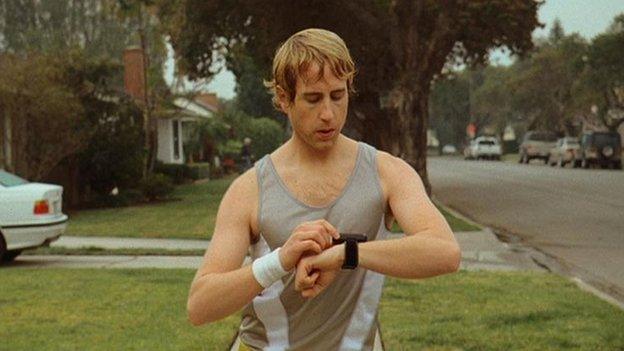Are adverts deliberately being racist?
- Published
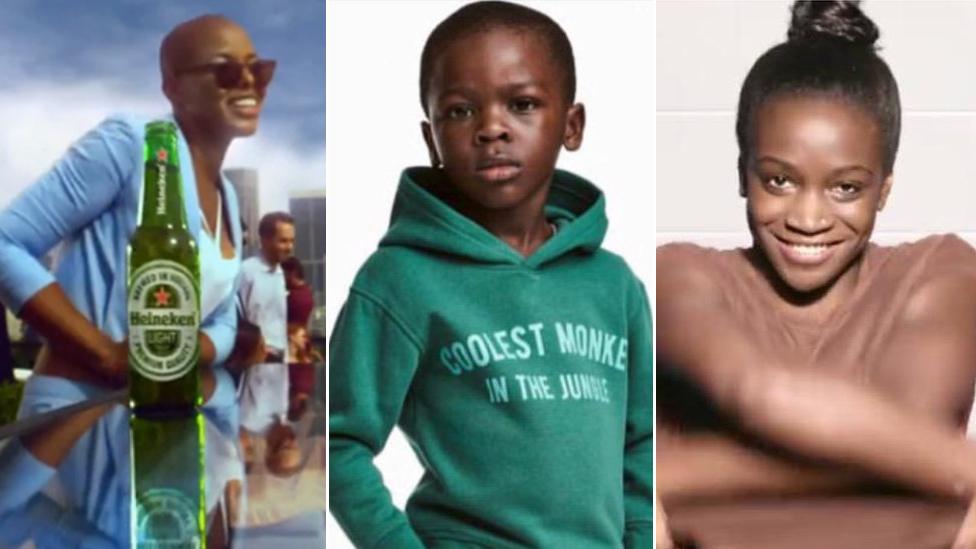
Several big brands have been labelled "racist" recently after releasing adverts which have backfired.
H&M apologised in January for showing a black child modelling a hoodie which had "coolest monkey in the jungle" on the front, following a huge backlash.
Dove soap said sorry a few months earlier for releasing a series of images that appeared to show a black woman turning into a white person.
And Chance the Rapper has labelled an advert for Heineken's low calorie beer "terribly racist" - claiming that brands are "purposely putting out noticeably racist ads so they can get more views".
But is there any truth in his claim?
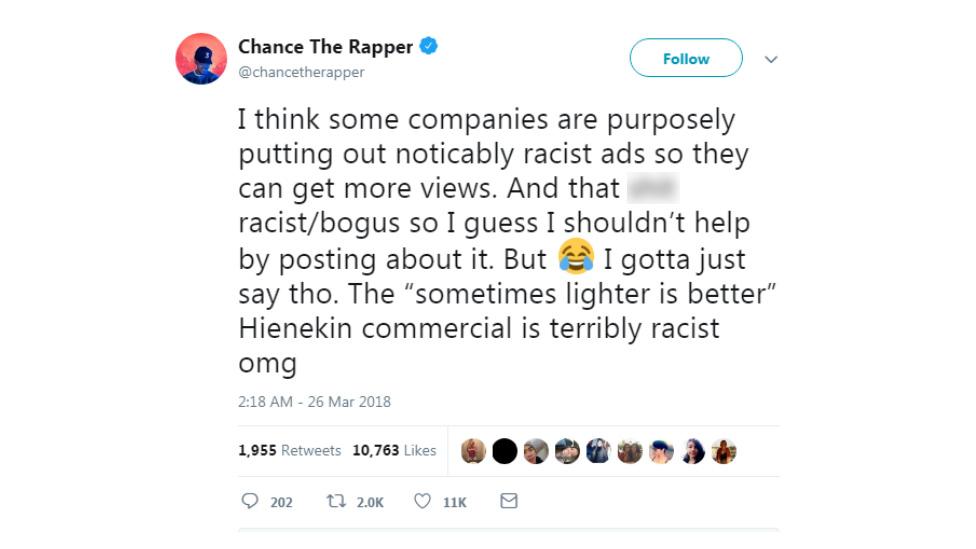
Paul MacKenzie-Cummins, managing director of Clearly PR Marketing and Communications, thinks some brands are using race to grab people's attention.
"They're clever people, those who work in ad agencies. They're very skilled and have huge budgets and are under increasing pressure to raise the profile of their client's brand.
"It's an ultra-competitive market and the retail space has never been as competitive as what it is now. They need to do something to get their voices seen and heard."
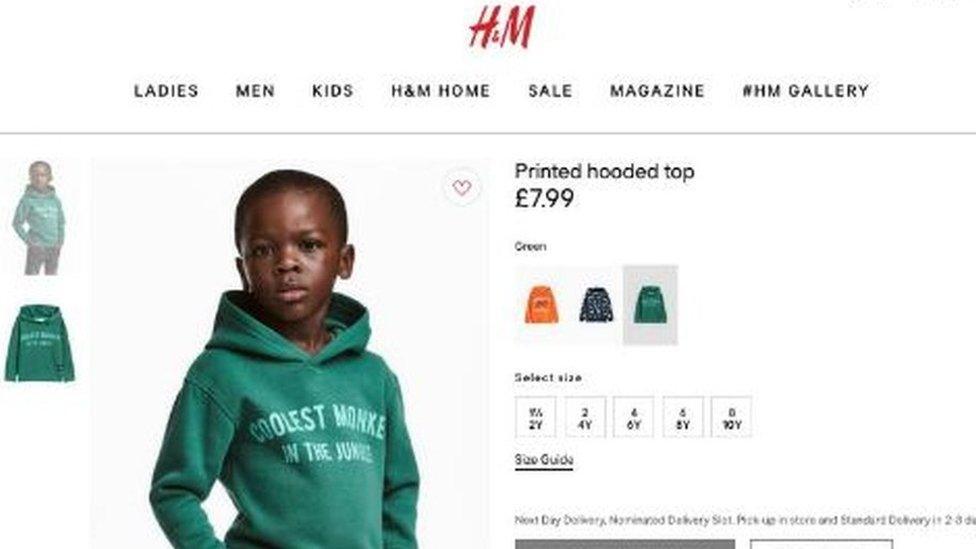
The Weeknd cut ties with H&M over their advert
Paul, who worked in advertising for 11 years, thinks the approach will ultimately damage a brand's reputation.
"To a degree Chance is kind of right in the sense that it's deliberately being provocative and it's trying to get the headlines - and it's working in that respect. That's the key word - respect. That's what it comes back down to.
"And this ultimately is going to be much more damaging for brands than what they actually realise."
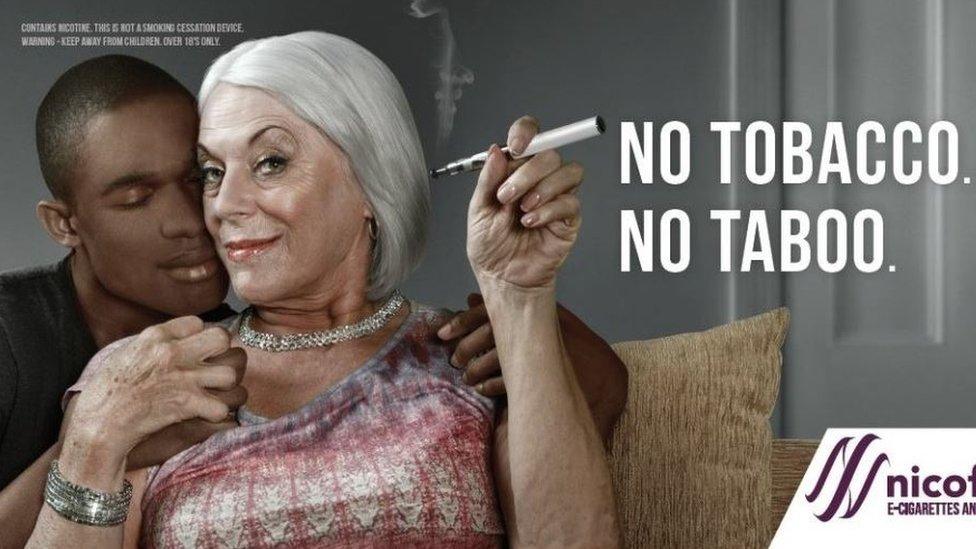
This advert was banned for suggesting it was taboo to have an interracial relationship
The UK's advertising watchdog, the Advertising Standards Authority (ASA), has received 2396 racism complaints since 2013 about 956 different ads.
Of those, 12 cases were formally investigated and 10 of those had the complaint upheld.
The ASA has the power to ban adverts it thinks breaches its standards.
One of its most recent cases was a complaint against Paddy Power for an advert featuring boxer Floyd Mayweather Jr, which encouraged readers to "always bet on black".
It banned the advert because it was "likely to cause serious offence on the grounds of race", and told the bookies not to make the same mistake again.
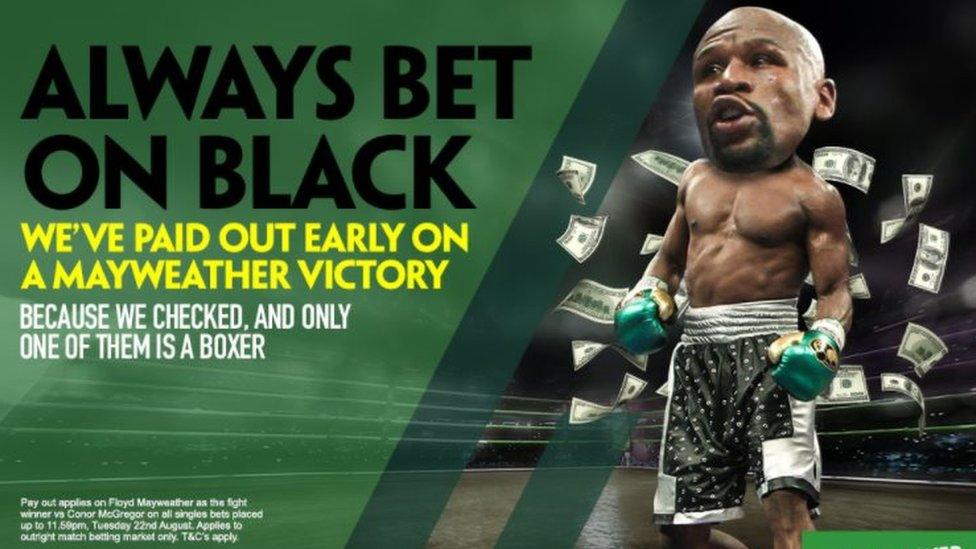
Paddy Power said it did not believe its advert was derogatory, distasteful or offensive
Kubi Springer is the founder of global branding agency She Builds Brands and has worked with the likes of L'Oreal and the Mobo Awards.
She says that despite adverts being looked at by lots of people before they make it to the public, a "lack of diversity" in advertising agencies means things can be missed.
"I wouldn't go as far as to say [brands are making] innocent mistakes, but also wouldn't go as far as Chance the Rapper and say they are being deliberately racist.
"You need people at management and senior manager level that are diverse - and that's both ethnicity, as well as the LGBT community, as well as women who will say 'Actually this might offend a particular demographic and maybe you should think about this again'."
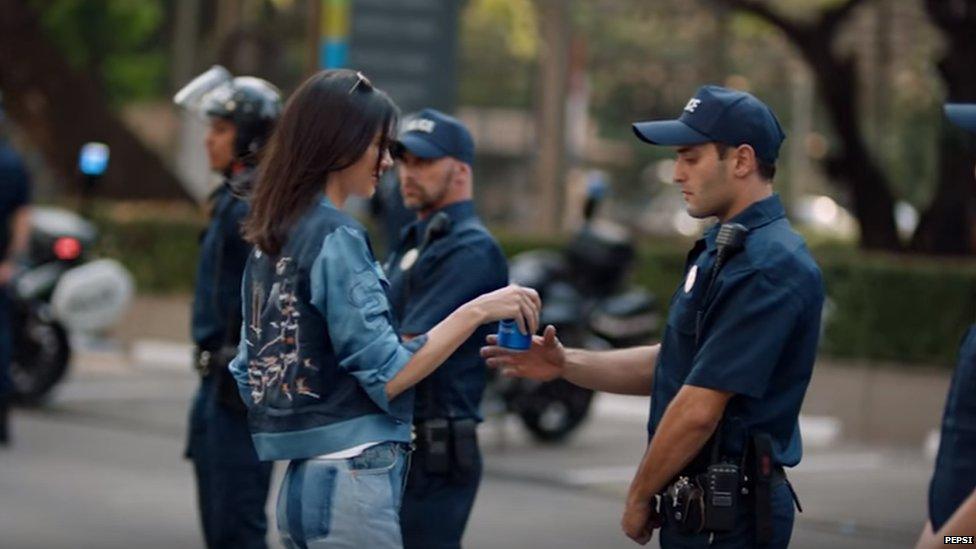
Pepsi apologised last year after being accused of undermining the Black Lives Matter movement in its advert featuring Kendall Jenner
A 2017 survey, external by the Institute of Practitioners in Advertising found that 12.9% of employees in the ad industry were from a black or ethnic minority background.
Sarah Jenkins, the chief marketing officer at advertising agency Grey London, doesn't believe any brand would put out a racist ad on purpose.
The model in the "racist" Dove ad - Lola Ogunyemi - says the Facebook advert was taken out of context
Her agency has set up a diversity task force - which has the support of around 20 advertising agencies - to help the industry attract more representative employees.
Like Kubi, she thinks a lack of diversity within the industry means some brands may not realise their ads could be seen as inappropriate.
She says: "Although we're seeing some bad campaigns there are some brilliant agencies and initiatives in place.
"I think what we've done with the diversity task force is pull together the biggest and most forward-thinking ad agencies in the UK and we're working together and using our skills to attract the best talent.
"That's not because we're worried about getting things wrong, it's a more positive reason. It's because when we are diverse we get better ideas, we get different perspectives and different approaches and the work simply gets better."
Follow Newsbeat on Instagram, external, Facebook, external and Twitter, external.
Listen to Newsbeat live at 12:45 and 17:45 every weekday on BBC Radio 1 and 1Xtra - if you miss us you can listen back here.
- Published26 March 2018
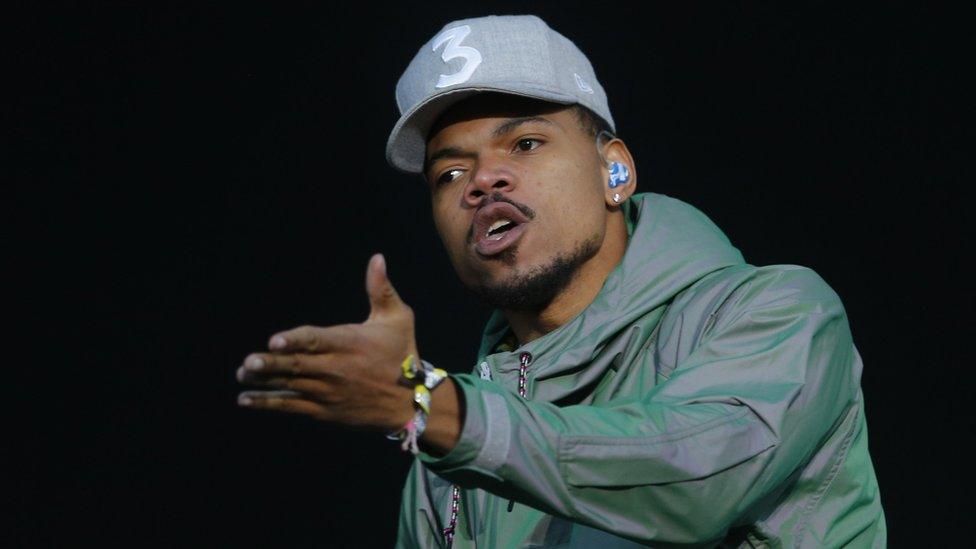
- Published8 January 2018
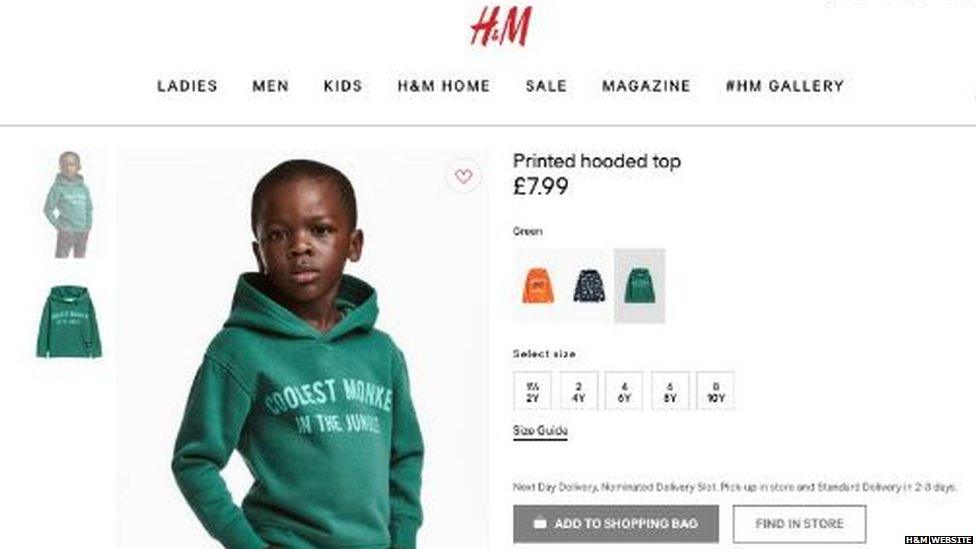
- Published8 October 2017
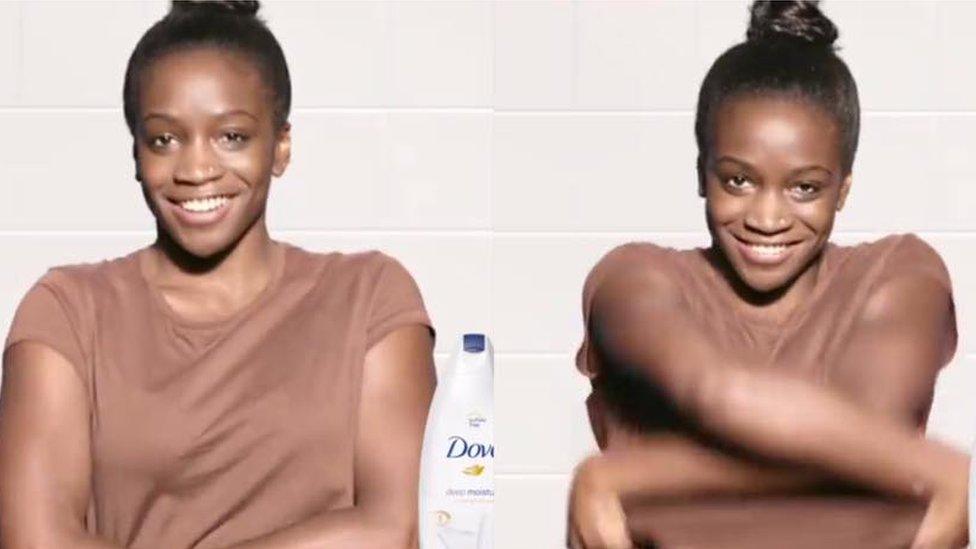
- Published6 April 2017
